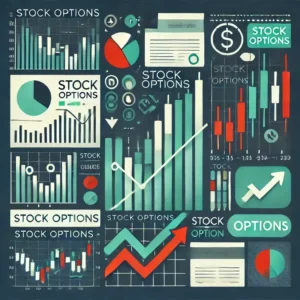Can you cash out stock options? Should you?
This post will address three main issues, namely:
- Can I cash out my employee stock options?
- How to cash out company stock options
- Should you cash out stock options?
Financial contracts known as stock options give their holder the right to pick up or dispose a certain number of shares at a fixed price. However, the holder may opt not to.
Your approach and risk aversion will determine whether or not stock options are a good investment. Because of leverage, they have the potential to yield big profits because a smaller starting investment can control more shares.
Higher risks accompany them, too, such as the potential loss of the entire payment for the options.
If you are looking to invest as an expat or high-net-worth individual, which is what I specialize in, you can email me (advice@adamfayed.com) or WhatsApp (+44-7393-450-837).
This includes if you are looking for alternatives or a second opinion.
Some of the facts might change from the time of writing, and nothing written here is formal advice.
For updated guidance, please contact me.
Can I cash out my employee stock options?
Of course. You have to exercise your options first to do so.
How to cash out company stock options
The following are the main ways that stock options can be redeemed:

- You purchase the shares and retain them after paying the exercise cost. This strategy binds up your investment until you sell, but you may always offer the shares for sale later if the price goes up.
- Exercising without out-of-pocket costs is also possible. You can use this strategy to exercise your options and offload enough shares to pay the exercise price plus applicable taxes all at the same time. It is your choice to cash out completely or maintain the remaining shares.
- You can sell the shares right away in a single transaction if your business is publicly traded. The exercise cost is covered by the selling revenues, so you don’t have to pay anything up in advance.
- You exercise your options and keep the remaining shares after selling just enough to pay for the acquisition price plus any related expenses.
Should you cash out stock options?
That depends, really.
It’ll be better to explore why you should and why you shouldn’t.
Stock Option Cash Out Benefits
- Cashing out might result in large gains if the stock price rises much above the exercise price. This is particularly alluring if the stock is erratic and could see a decline in value in future periods.
- Instant cash flow is available when you cash out, which you can use for other investments or for your own purposes.
- Cashing out trims the risk of owning the stock and perhaps losing its worth if the market drops. When stock options are exercised, potential theoretical risk becomes real risk, with the possibility of losing both the purchase price of the shares and the exercise fee should the stock price plunge.
- Selling and exercising stock options may provide favorable tax treatment, depending on your financial circumstances and the type of options you have. This is especially true if you may deduct losses from profits or take advantage of reduced capital gains tax rates.
Stock Option Cash Out Negatives
- Keeping onto the stock rather than selling out immediately could result in bigger returns if you have faith in the company’s long-term growth. How well the company performs and the state of the market will determine how successful this strategy is.
- A large upfront expenditure is necessary for stock option exercise. Not everyone can afford it. Financially speaking, it might not be wise to exercise your options if the stock price is currently low or if they are not valued more than the exercise price.
- The financial circumstances of an individual may become more complex due to tax responsibilities resulting from the exercise of stock options, such as the Alternative Minimum Tax for Incentive Stock Options.
Pained by financial indecision? Want to invest with Adam?

Adam is an internationally recognised author on financial matters, with over 760.2 million answer views on Quora.com, a widely sold book on Amazon, and a contributor on Forbes.


